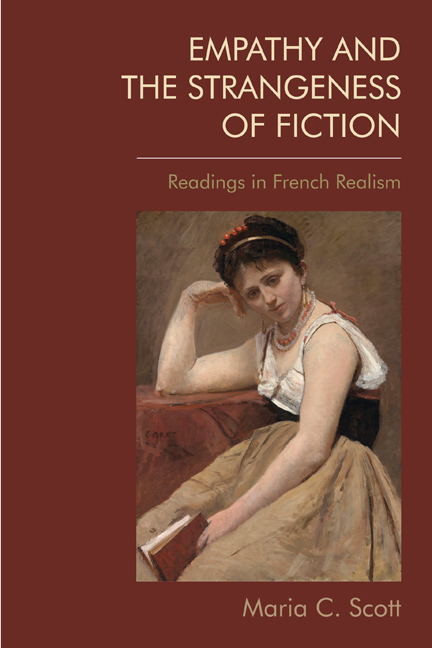Book contents
- Frontmatter
- Contents
- Dedication
- 1 Does Reading Fiction Boost Empathy? Psychological Approaches
- 2 Literary Approaches to Empathy
- 3 Fictional Strangers and the Strangeness of Fiction
- 4 Balzac: The Limits of Transparency and the Dangers of Opacity
- 5 Stendhal and the Two Opposing Demands
- 6 Sand and the Necessity of Suspicion
- 7 Towards an Empathetic Ethics of Fiction-Reading
- Bibliography
- Index
7 - Towards an Empathetic Ethics of Fiction-Reading
Published online by Cambridge University Press: 17 October 2020
- Frontmatter
- Contents
- Dedication
- 1 Does Reading Fiction Boost Empathy? Psychological Approaches
- 2 Literary Approaches to Empathy
- 3 Fictional Strangers and the Strangeness of Fiction
- 4 Balzac: The Limits of Transparency and the Dangers of Opacity
- 5 Stendhal and the Two Opposing Demands
- 6 Sand and the Necessity of Suspicion
- 7 Towards an Empathetic Ethics of Fiction-Reading
- Bibliography
- Index
Summary
This book set out to see whether a close reading of literary texts could yield insights into the question of how, and possibly why, fiction engages affective sharing and mind-reading skills. On the basis of recent work in psychology and cognitive studies, the first chapter proposed an idea that, to my knowledge, has not been explored in those fields but that is likely to find fairly ready acceptance among literary scholars, at least once the terms of the argument are shifted from affective sharing and mind-reading to seduction and suspicion. This new but not new idea is that the closely connected skills of affective sharing and mind-reading are regularly brought into creative conflict by fictional texts, both at the thematic level and at the level of reception. In order to make its case, this book proposed, in its third chapter, that literary texts can thematise their own reception in the representation of responses inspired by a stranger figure who is closely associated with fiction. Close readings of three novels were subsequently proposed by way of illustration. This concluding chapter will outline a couple of general conclusions about the fiction–empathy relationship that might tentatively but plausibly be drawn from this book's close readings of fictional responses to fictional stranger figures. It will also ask, in closing, what specific contributions this study might be considered to make to the wider cross-disciplinary conversation on the subject of the relationship between fiction and empathy.
The Limits of Mind-Reading
As discussed in the chapter on La Fille aux yeux d’or, the realist novel appears to promise total legibility of character, and of the social world more generally. However, the more or less realist fictions selected for study here show us on an explicit, thematic level that characters, and by extension people, can be other than they seem, and resistant to mindreading. Whether or not Henri finally succeeds in deciphering the truth of Paquita's desire is a moot point. Julien's motivations for shooting Madame de Rênal remain opaque at the end of Le Rouge et le Noir, not least to himself. Even the generous nature of Ralph's intentions towards Indiana is at least partially thrown into doubt by elements in his self-presentation.
- Type
- Chapter
- Information
- Empathy and the Strangeness of FictionReadings in French Realism, pp. 200 - 214Publisher: Edinburgh University PressPrint publication year: 2020



